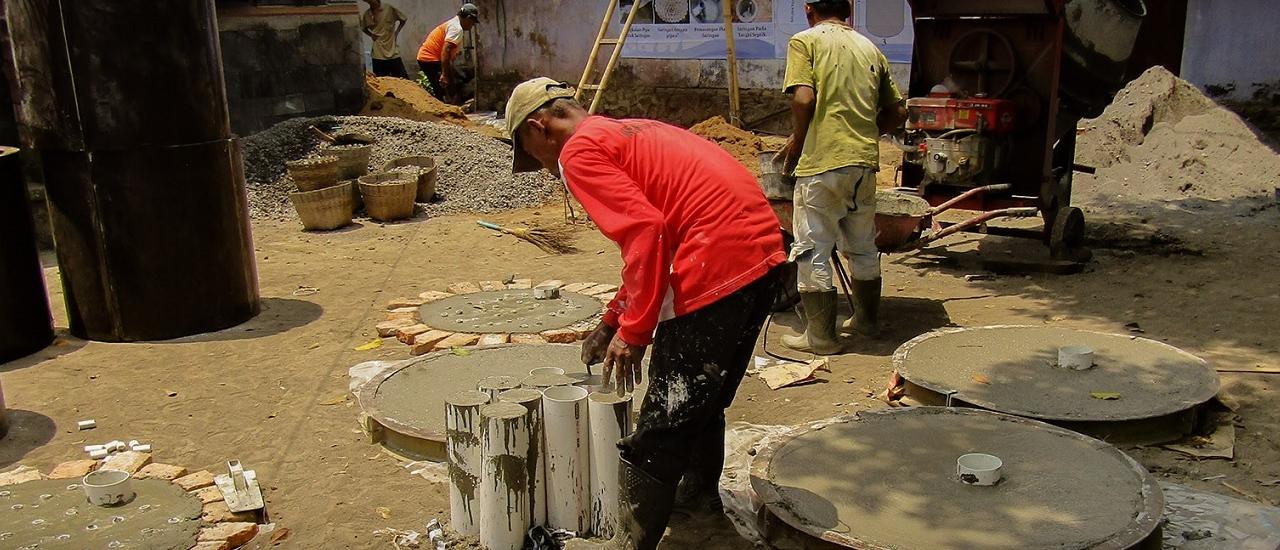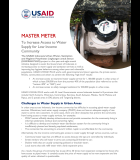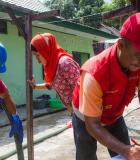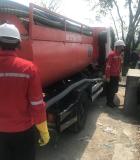As cities grow, the supply of clean water and sanitation cannot always keep up—particularly in countries like Indonesia, where only one in three urban families have access to clean piped water. To help tackle sustainable water supply and wastewater treatment issues in Indonesia, the USAID Indonesia Urban Water, Sanitation and Hygiene Penyehatan Lingkungan untuk Semua (IUWASH PLUS) project has been working to extend the reach of water and sanitation services while simultaneously strengthening their financial foundations. Since 2016, IUWASH PLUS has engaged with more than 30 local governments across the country.
IUWASH PLUS supports cities in sanitation planning, establishing and/or strengthening the institutional foundation for designing and implementing safely managed sanitation solutions. USAID conducted research with more than 3,450 Indonesian families to better understand WASH conditions facing poor, urban households in the lowest two quintiles. IUWASH PLUS also explored barriers and motivations associated with WASH behaviors among this population, and identified entry points and communication channels to help households adopt healthier WASH practices. Based on the results, IUWASH PLUS is rolling out informed strategies on behavior change and communication, sanitation marketing, and microfinance—aiming for new and lower-cost approaches for helping poor households and communities access better water and sanitation services and adopt better hygiene practices, including tailored interventions that address local needs in 32 urban areas.
In communities like Taman Agung Village in Central Java’s Magelang District, IUWASH PLUS organized transect walks through neighborhoods that allowed residents to see how inadequate sanitation was polluting their environs, and raised public awareness about fecal-oral transmission to convince residents about the public health benefits of building latrines and septic tanks. IUWASH PLUS’s innovative approaches to septic tank financing have also helped lay the foundation for sustainable sanitation improvements, generating community buy-in and positive buzz among neighbors. “After I was invited to an [IUWASH PLUS] training on the important functions of septic tanks, I decided to build a septic tank facility for my own house,” says resident Mr. Marsudi. “The total cost was about two million rupiah ($143). While it was not inexpensive, my neighborhood was very supportive and helped to build the facility. We will continue to construct more septic tanks in our neighborhood, building one for each neighbor in turn. The funding for each septic tank comes from a community savings account,” he said, referring to a pooling fund of community savings that IUWASH PLUS helps manage. Through this fund, new loans are extended as existing loans are repaid.
These community-based approaches to sanitation financing are helping Indonesians become more self-reliant as they pursue sustainable sanitation solutions for their homes and communities, and IUWASH PLUS has complemented such efforts by training more than 6,000 Indonesians in improved WASH practices. By the time the project concludes in 2021, IUWASH PLUS expects to facilitate access to improved water service to more than 1 million Indonesians in urban areas, and increase access to safely managed sanitation to more than 500,000.






